Chrysanthemums are beloved for their vibrant blooms that add a burst of color to fall gardens. Discover tips and tricks for growing healthy mums, caring for them properly, and designing eye-catching displays with these autumn favorites.
As the days grow shorter and the leaves begin to turn, one flower stands out as the undisputed queen of the autumn garden – the chrysanthemum. With their bold and vibrant hues, ranging from fiery oranges and rich reds to soft pinks and sunny yellows, these hardy blooms bring a burst of life and warmth to the cooler months. Whether you’re a seasoned gardener or just starting to explore the joys of fall gardening, chrysanthemums offer a rewarding and visually stunning addition to any outdoor space.
In this comprehensive guide, we’ll delve into the world of chrysanthemums, covering everything from their origins and varieties to essential growing and care tips, as well as creative design ideas to showcase their beauty in your garden.
Here’s a short information chart about chrysanthemums:
| Common Name | Chrysanthemums |
|---|---|
| Botanical Name | Chrysanthemum spp. |
| Plant Type | Perennial (often grown as annuals in some regions) |
| Zones | 5-9 (depending on variety) |
| Exposure | Full sun |
| Bloom Time | Late summer to fall |
| Height/Spread | 1-3 feet tall, 1-2 feet wide (depending on variety) |
The History and Varieties of Chrysanthemums
Chrysanthemums, affectionately known as “mums,” have a rich and storied history dating back to ancient China, where they were revered for their symbolism and medicinal properties. Over the centuries, these beloved blooms have been cultivated and hybridized, resulting in a diverse array of varieties that cater to different growing conditions and desired bloom shapes.
Popular Chrysanthemum Varieties
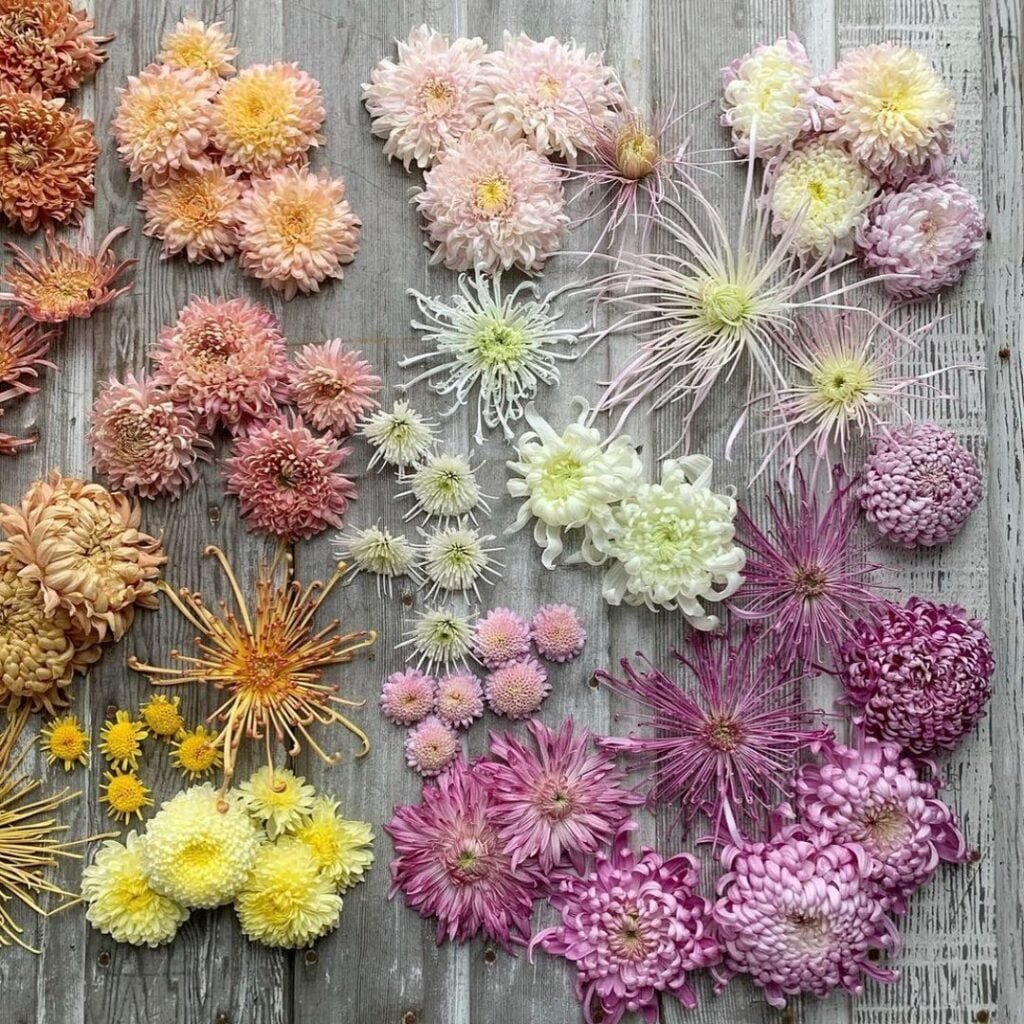
- Garden or Hardy Mums: These sturdy plants are designed to withstand cooler temperatures and are often used for outdoor garden displays.
- Exhibition Mums: Prized for their perfectly formed, uniform blooms, these varieties are commonly grown for competitive shows and exhibitions.
- Cushion Mums: Known for their compact, mounded growth habit and profusion of small, decorative blooms, cushion mums are ideal for containers and borders.
- Spider Mums: With their long, tubular petals radiating outward, spider mums offer a unique and whimsical appearance that adds visual interest to any garden.
Growing Chrysanthemums: From Planting to Blooming
Planting Chrysanthemums
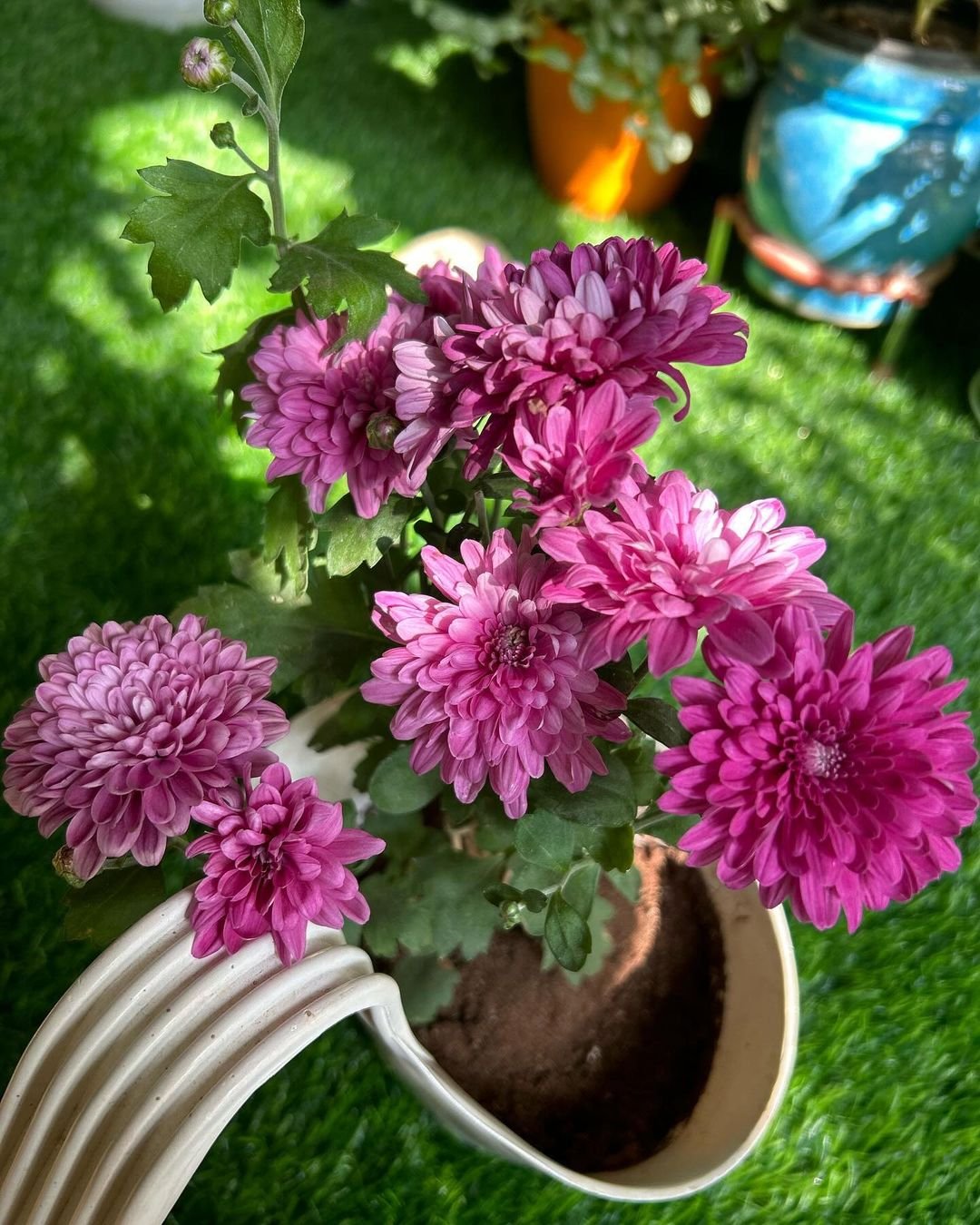
Successful chrysanthemum cultivation starts with proper planting techniques. These sun-loving plants thrive in well-draining soil and benefit from a location that receives at least six hours of direct sunlight each day. When planting, ensure proper spacing between plants to allow for adequate air circulation and prevent overcrowding.
Caring for Chrysanthemums During the Growing Season
Once established, chrysanthemums require consistent care to produce their stunning floral displays. Here are some essential tips:
Watering
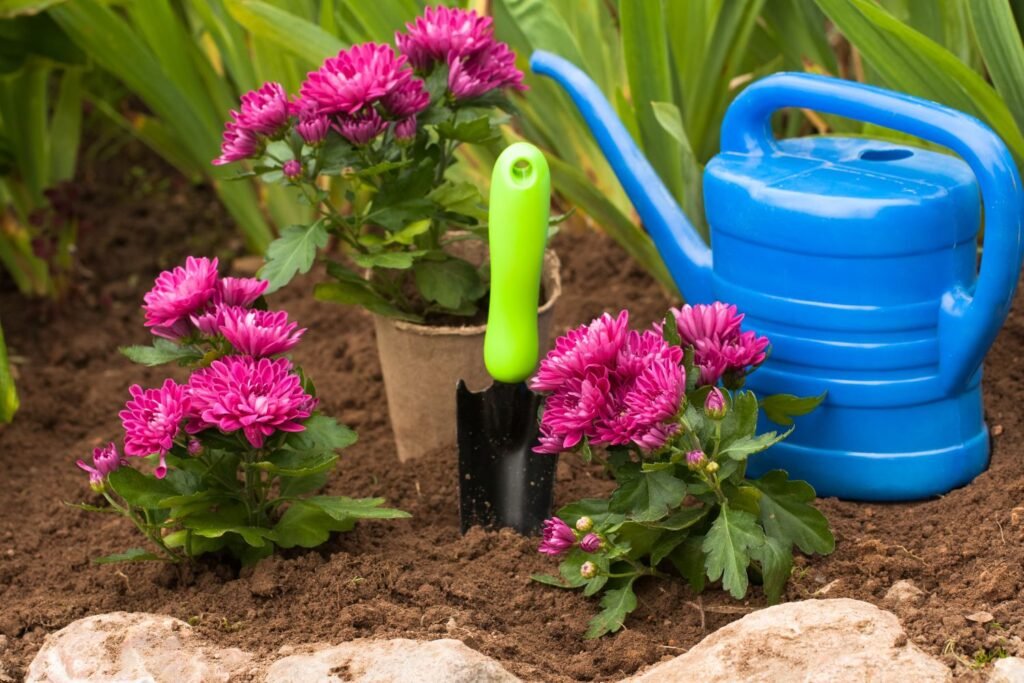
Maintain consistently moist, but not waterlogged, soil. Chrysanthemums are susceptible to root rot, so proper drainage is crucial.
Fertilizing
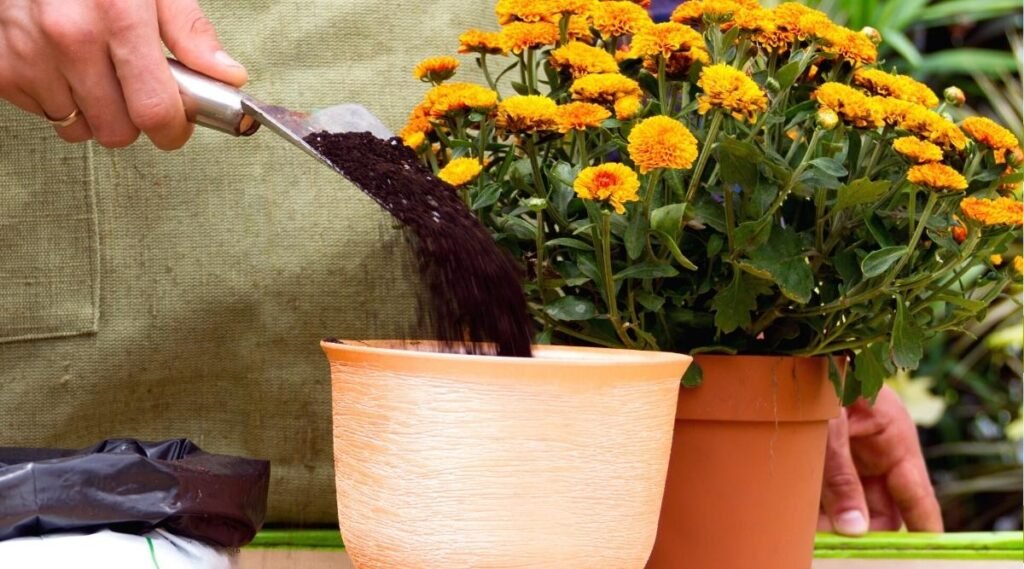
Feed your mums with a balanced, water-soluble fertilizer every two to four weeks during the growing season to promote robust growth and abundant blooms.
Pinching and Disbudding
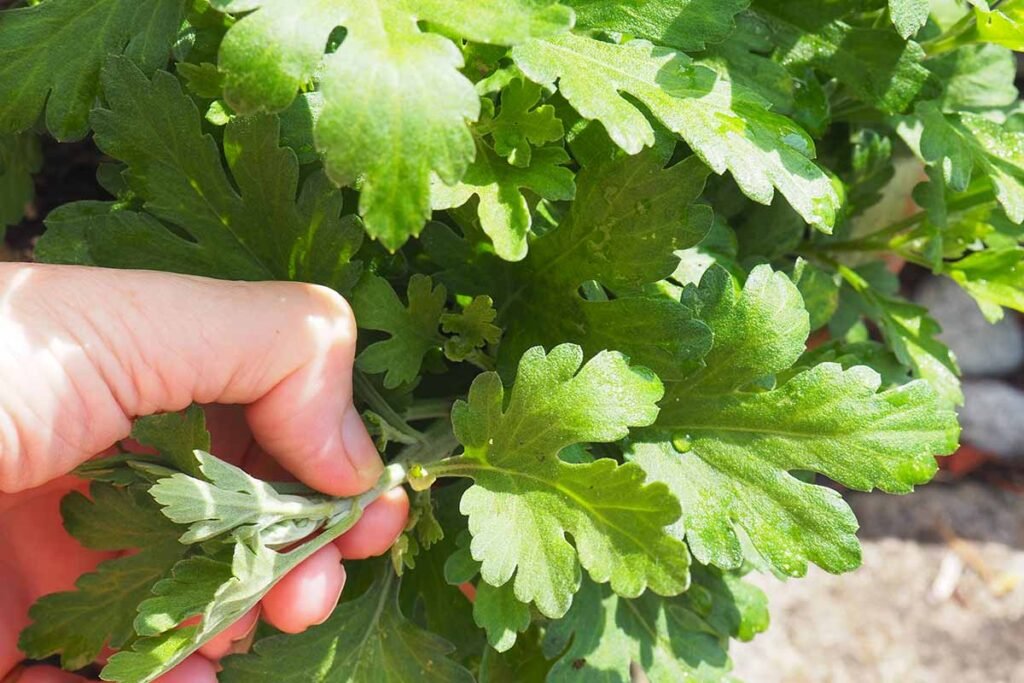
Pinching back the plant’s growing tips in early summer encourages bushier growth and more flower buds. Disbudding, or removing excess buds, leads to larger and more vibrant blooms.
Overwintering
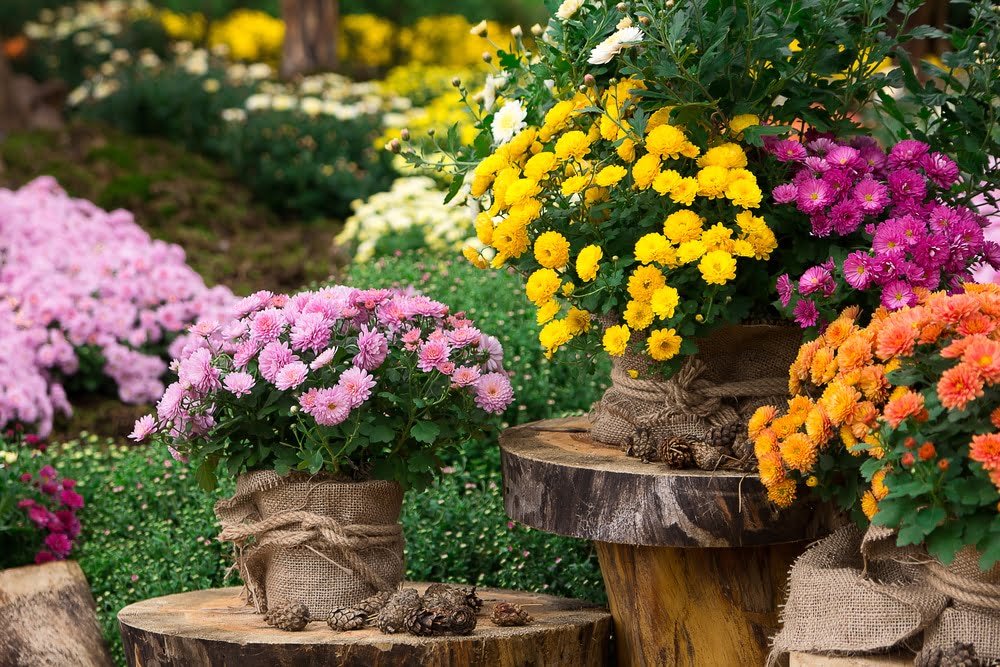
In colder climates, protecting your mums during the winter months is essential. Mulch around the base of the plant, and consider covering them with a cold frame or burlap wrap when temperatures drop.
Caring for Chrysanthemums: Ensuring Longevity and Health
Deadheading
Regularly removing spent flowers, or “deadheading,” encourages the plant to produce more blooms and prolongs the flowering season.
Pest and Disease Management
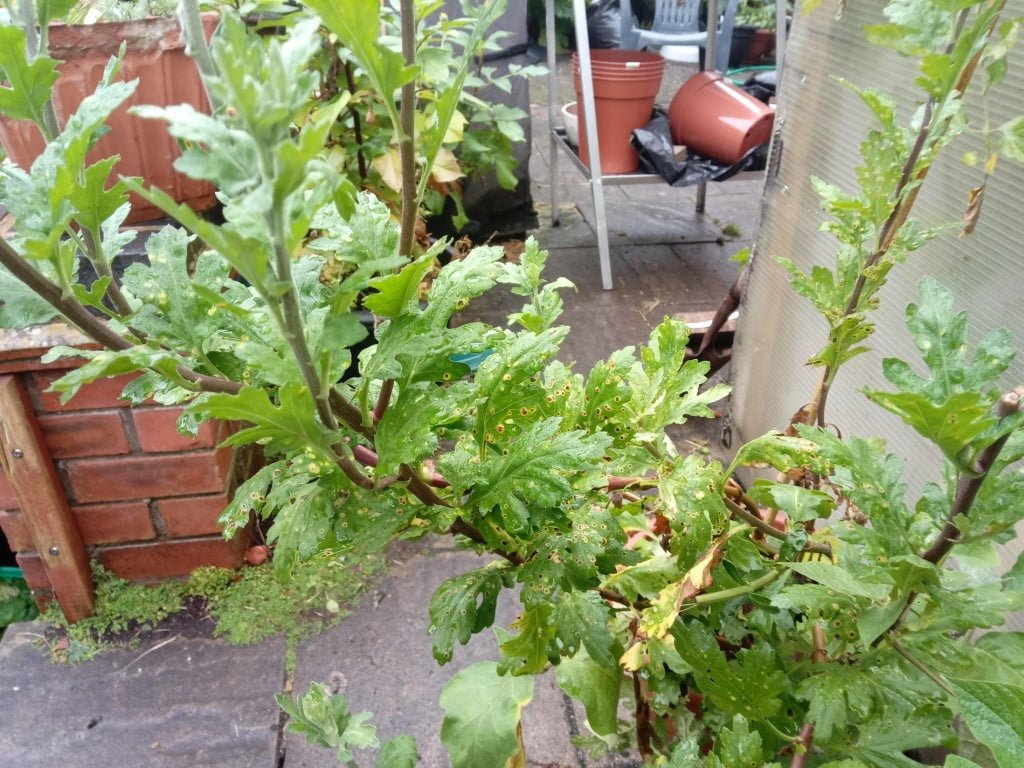
Keep an eye out for common pests like aphids, spider mites, and leaf miners, as well as diseases such as powdery mildew and leaf spot. Address issues promptly with appropriate organic or chemical controls.
Dividing and Transplanting
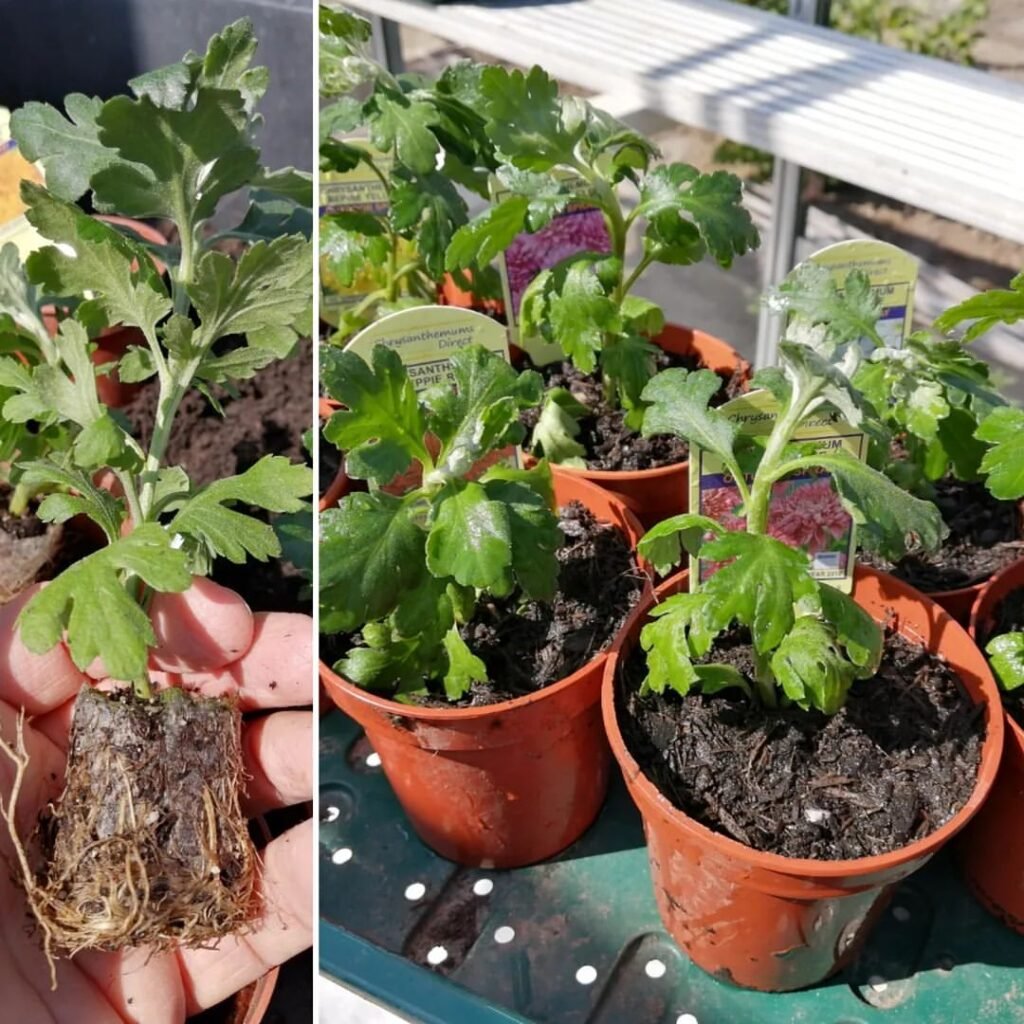
Chrysanthemums benefit from being divided and transplanted every two to three years. This rejuvenates the plant and promotes vigorous growth and flowering.
Designing with Chrysanthemums: Creating Stunning Fall Displays
With their vibrant colors and varied bloom shapes, chrysanthemums offer endless possibilities for creating captivating fall displays in your garden. Here are some design ideas to inspire you:
Container Gardens
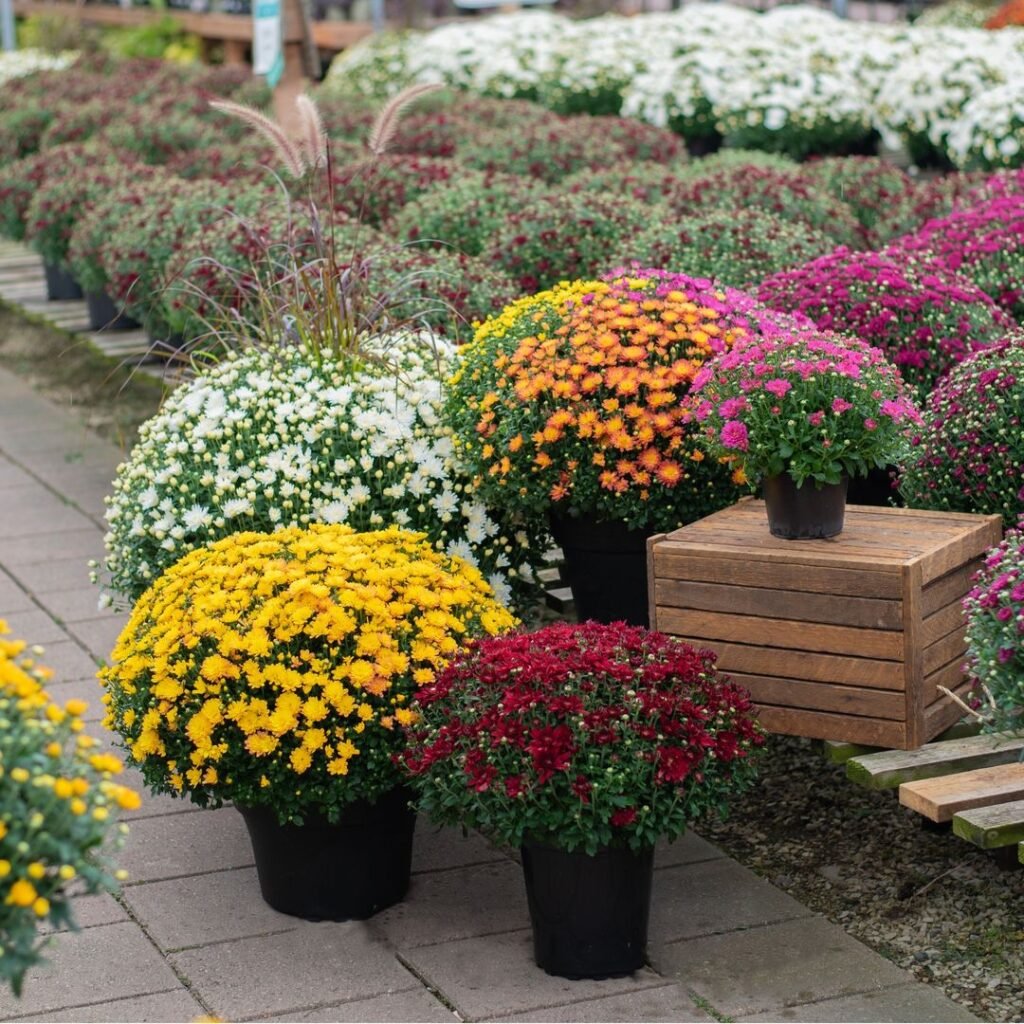
Plant chrysanthemums in pots, window boxes, or other containers for a burst of seasonal color on patios, porches, or entryways.
Borders and Beds
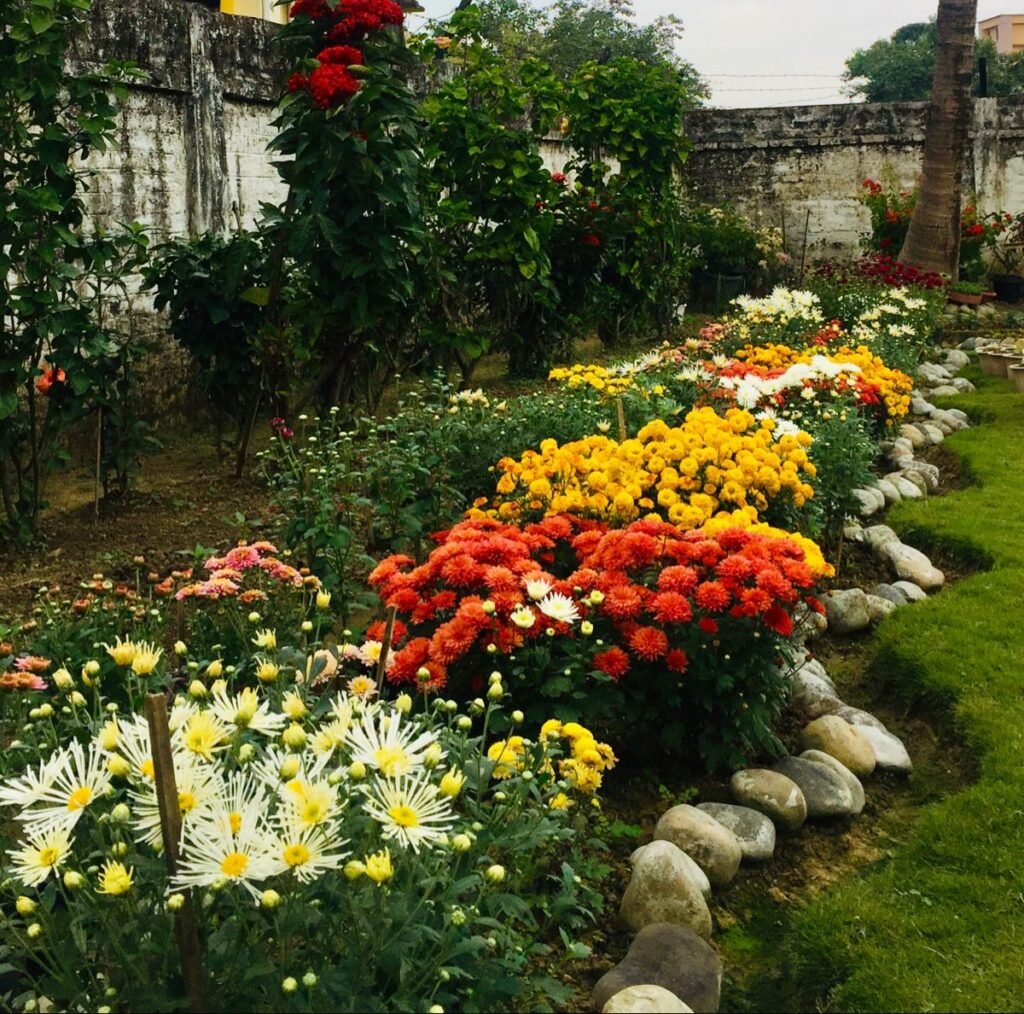
Incorporate mums into borders and garden beds, combining them with complementary fall-blooming perennials like asters, ornamental grasses, or sedum for a stunning autumnal tapestry.
Cutting Gardens
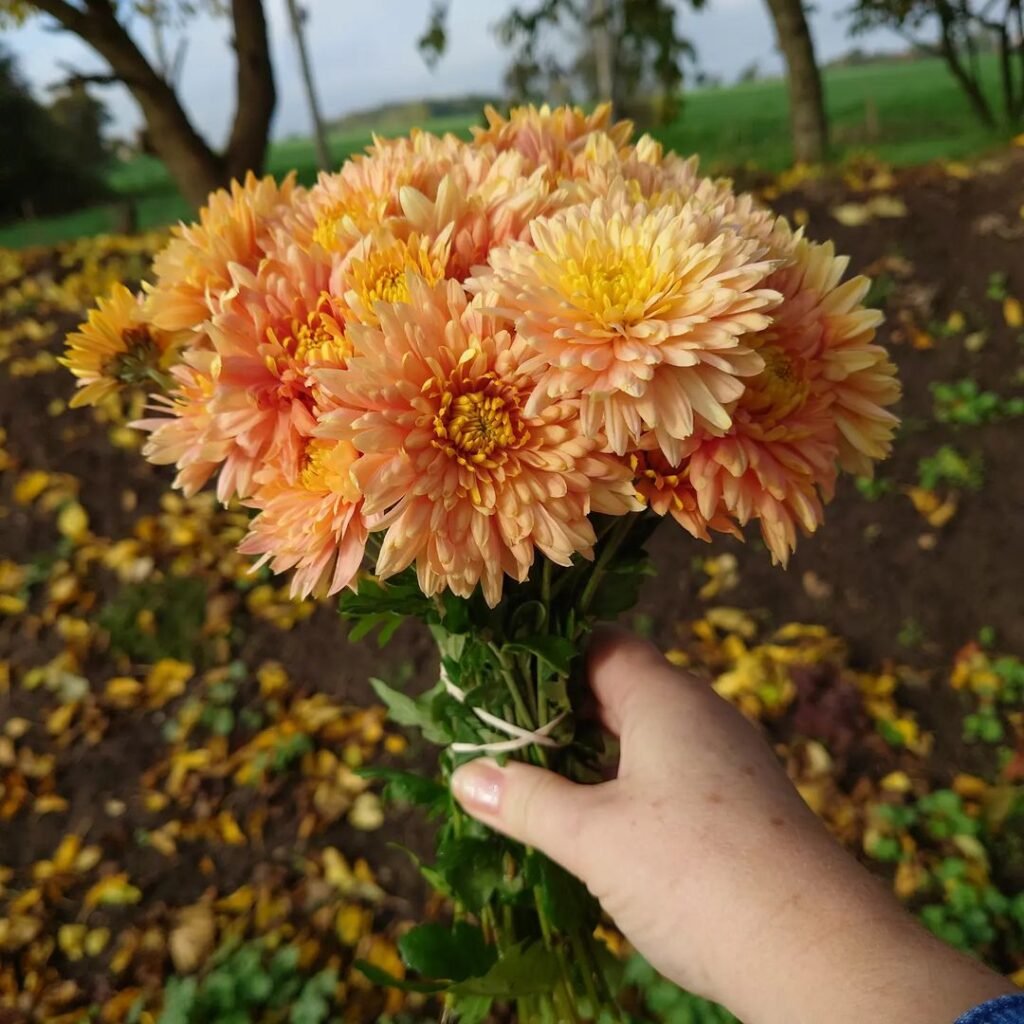
Grow chrysanthemums specifically for cut flower arrangements. Their long-lasting blooms make beautiful additions to bouquets and centerpieces.
Companion Planting

Pair chrysanthemums with cool-season annuals like pansies, violas, or ornamental cabbages for a visually striking and cohesive display.
Chrysanthemums for Indoor Enjoyment
While chrysanthemums are primarily grown as outdoor plants, they can also be enjoyed indoors with proper care. Here are some tips for bringing the beauty of mums inside:
Potted Mums
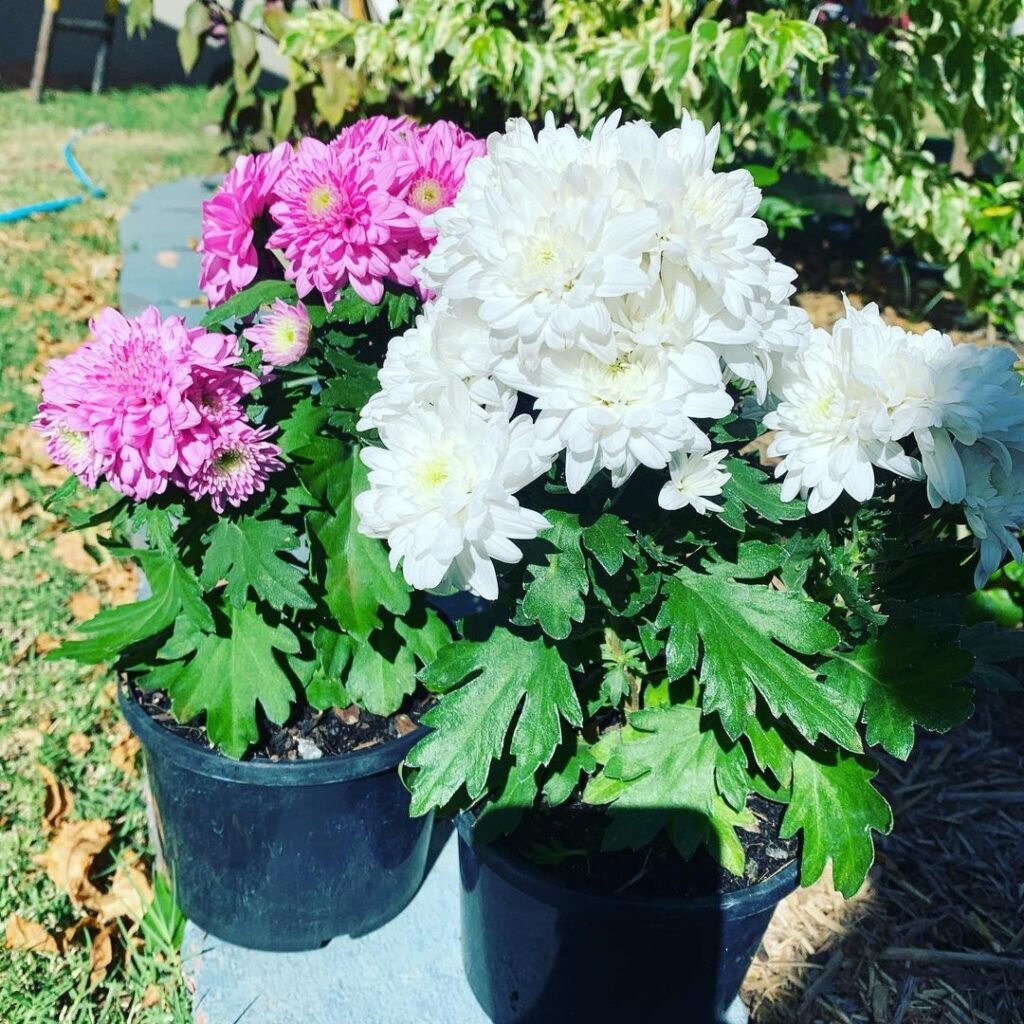
Purchase potted chrysanthemums and enjoy their vibrant blooms as a temporary indoor decoration. Ensure they receive bright, indirect light and consistent watering.
Cut Flowers

Use chrysanthemum blooms in fresh-cut flower arrangements. Choose stems with tightly closed buds for the longest vase life.
Dried Flowers
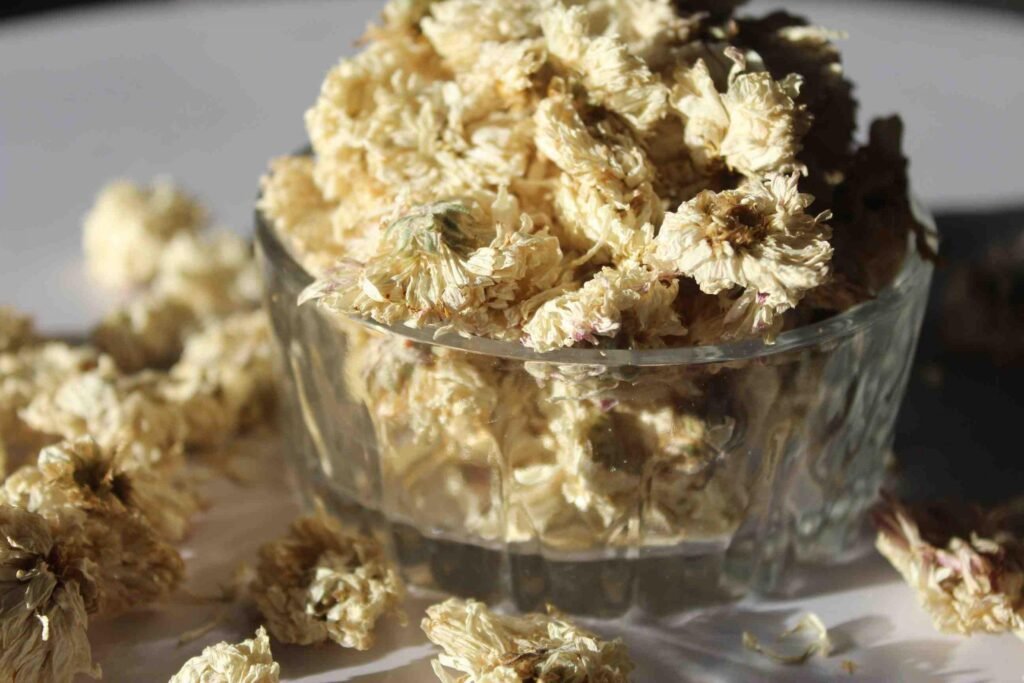
Preserve the beauty of chrysanthemums by air-drying or using desiccants to create long-lasting dried floral arrangements or decorative accents.
Conclusion
Chrysanthemums are truly the stars of the fall garden, offering a stunning display of color and beauty that brightens up even the coolest days. With their diverse varieties, easy-to-grow nature, and versatility in design, these beloved blooms are a must-have for any gardener seeking to create a vibrant and eye-catching outdoor space during the autumn months.
By following the tips and guidelines outlined in this comprehensive guide, you’ll be well-equipped to cultivate healthy and prolific chrysanthemums, ensuring a spectacular show of fall color year after year. So why not embrace the magic of these autumn treasures and incorporate them into your garden today? Your fall landscape will thank you with a breathtaking array of blooms that will leave you and your neighbors in awe.
Pingback: Hollyhocks: How to Grow and Care for These Classic Cottage Flowers -
Pingback: How to Create a Cut Flower Garden: A Guide to Growing Your Own Bouquet
Pingback: 20 Flowers for a Cutting Garden Gardeners School
Pingback: Growing Trailing Petunias: A Comprehensive Guide -
Pingback: The Radiant Beauty of Yellow Mums: A Gardener’s Guide -
Pingback: Butterfly Bushes: Tips for Growing Beautiful Varieties
Pingback: Caring for Calla Lilies in the Garden: A Comprehensive Guide
Pingback: How to Take Care of Chrysanthemum - Back Gardener
Pingback: Planting Succulents: 8 Tips for a Vibrant Succulent Garden
Pingback: Grow Your Own Wisteria from Seeds: A Step-by-Step Guide -
Pingback: How Long Do Chrysanthemums Flower - Back Gardener
Pingback: Everlasting Daisies: The Essential Guide to Growing & Caring
Pingback: Black Velvet Petunias : Unleash the Drama with This Beginner’s Guide to Growing - Gardener's School
Pingback: A Guide to Growing & Caring for Verbena : Endless Color from Spring to Fall - Gardener's School
Pingback: Discover 18 Stunning Russian Flowers : A Visual Delight - Gardener's School
Pingback: Zodiac Flowers : A Blooming Guide to Your Astrological Floral Matches (2024)
Pingback: July Birth Flower : A Symbol of Passion and Devotion
Pingback: Hollyhocks : How to Grow and Care for These Classic Cottage Flowers - Gardener's School